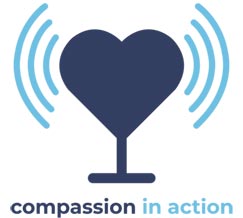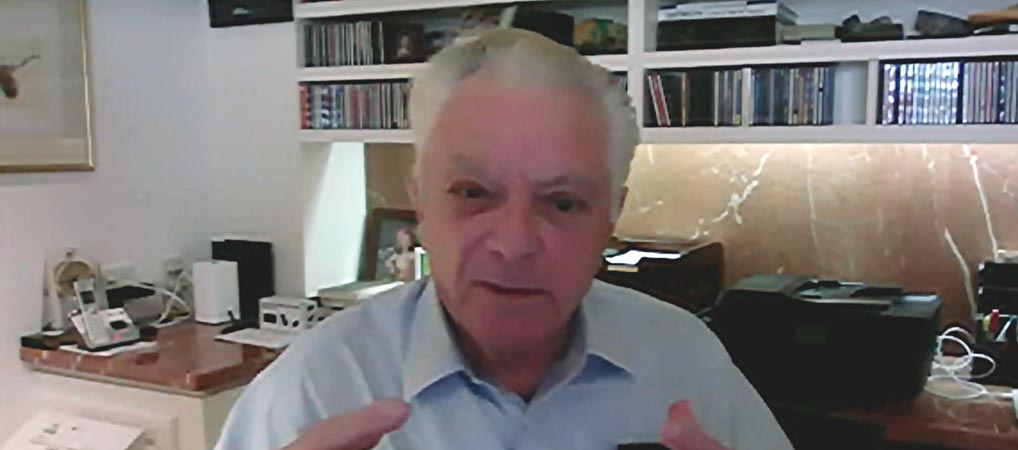
Join CPP Founder Fritzi Horstman and guests as they discuss the objectives and approaches involved in bringing trauma awareness and compassionate healing to the forefront of public conversation.
Dr. Vincent J Felitti, MD from Kaiser Permanente is the co-principal investigator, along with Robert F. Anda MD from the CDC, of the Adverse Childhood Experiences research study.
The ACE study changed the way we understand the impact and predisposing influence childhood trauma has on adult health issues. It helped bring to the forefront the realization that we aren’t bad people but, rather, bad things have happened to us which have subsequently impacted our physical, mental and emotional wellbeing.
Dr. Felitti graduated from John Hopkins Medical School, starting his medical career as an infectious disease physician in 1968. Dr. Felitti founded the Department of Preventive Medicine at Kaiser Permanente San Diego and held the position of Chief of Preventive Medicine in 2001. He is a Clinical Professor of Medicine at University of California and a Fellow at the American College of Physicians.
2:05 – Origins of the ACE survey
3:23 – Obesity program uncovers hidden childhood trauma and sexual abuse
4:35 – Major study of 26,000 adults CDC and Kaiser Permanente
5:00 – 10 most common ACES selected that kept coming up with obese patients in weight loss program
5:50 – Initial sample was biased (74% white, middle class)
6:09 – 5% of people in initial study had family member go to prison
7:09 – Of 1000-person sample of those enrolled in obesity program, 55% experienced childhood sexual abuse
8:20 – Female prison population, nearly 100% experienced past sexual abuse
8:41 – ACE survey includes “often or very often” meaning repetitive emotional abuse
9:25 – Parents telling children to keep quiet about abuse, or not believing them, equates to parental neglect (adds another ACE)
10:15 – Unpredictable abuse leads to hypervigilance
11:04 – Domestic violence
12:38 – 440,000 patients over several years were surveyed by integrating ACE questions into medical history questionnaires
13:30 – Mathematician analyzed whether or not the ACE study had any effect on subsequent healthcare of patients
14:00 — ACE survey results in amazing reductions in medical visits within following 12 months
14:25 – Vermont legislature invited Dr. Felitti to present, including ACE information in their state-run programs. Now 22 more states have passed similar legislation.
16:26 – Example of high cholesterol – is it genetics? ACEs?
17:24 – ACEs affect health in three categories including coping (crystal meth is street version of meth antidepressant from 1940s)
19:19 – One of Dr. Felitti’s more memorable patients – obese, heavy smoker, history of childhood molestation
22:46 – Neurochemical depression – life experiences cause chemical changes
23:37 – Prevalence of anxiety in society and 64% of Americans with at least 1 ACE
25:50 – Should we do ACE with the census?
26:55 – Patients appreciated medical staff acknowledging their “dark secrets” and still making them feel accepted
28:39 – Cities have published ACE survey in their newspapers
29:28 – School play idea – address abuse via fictional character development
31:45 – Awareness is key, rage is not who we are
32:37 – ACE awareness in prisons
32:55 – Why doesn’t the media address the childhoods of murderers? Wesley Purkey had an ACE score of 10. We executed him.
35:23 – 2000 ACE surveys have gone out to prisons
36:27 – 4 or more ACEs, seven times more likely to go to prison
36:54 – 3 pathways ACEs lead to disease: Coping mechanisms, toxic stress (brain chemistry) and epigenetics (influences on gene function)
41:58 – autoimmune issues associated with ACEs
42:24 – toxic stress and brain releases pro-inflammatory chemicals
44:45 – Need to improve parenting across the nation
45:57 – COVID and suppressed immune system
47:24 – lifelong fight or flight following child abuse
49:36 – ACEs can take years off of a person’s life
50:15 – Addiction behavior; short term benefits versus future health problems
51:30 – What helps people to heal?
55:15 – Universal understanding, lifting of shame
56:10 – Trauma-informed programs for prisons
58:56 – Role of autobiographical writing in healing of ACEs
1:01:29 – How to create a trauma-informed society
1:03:14 – Dr. Nadine Burke Harris, pediatrician who became California’s Surgeon General after integrating ACEs into her practice
1:05:58 – 27 more states needed to integrate ACE information into their operations
1:08:05 – 2.2 million people in prison
1:09:29 – Physicians need to have ability to see full picture of patient’s health, including past childhood trauma
1:11:47 – Benefits of hypnotherapy – American Society of Clinical Hypnosis
1:20:05 – Solutions (alcohol, workaholic, smoking etc.) all to mask real feelings
1:21:35 – 2021 will be the year America becomes trauma-informed.
1:21:58 – For more information, Google or YouTube Adverse Childhood Experiences Study
Podcast: Play in new window | Download


